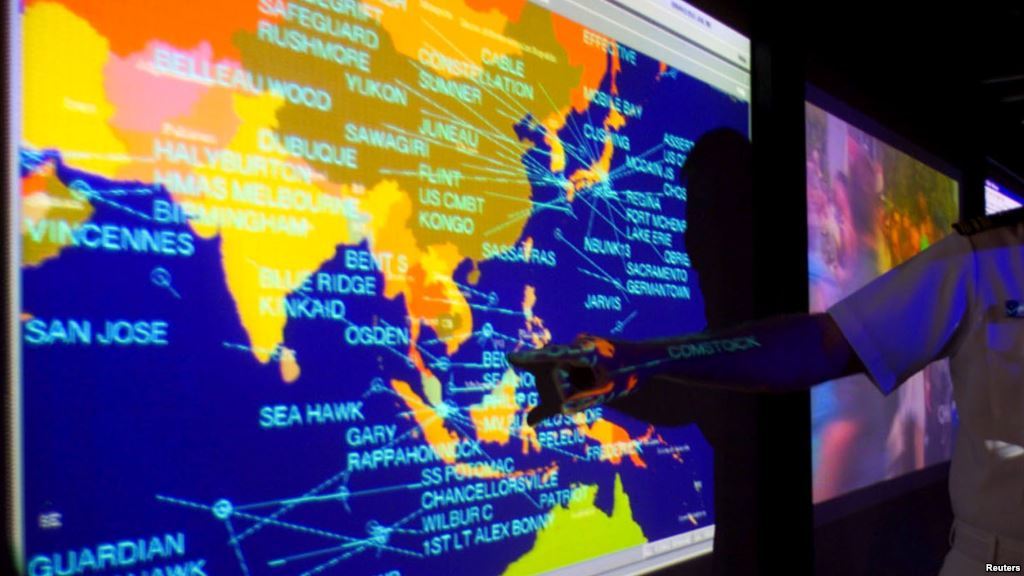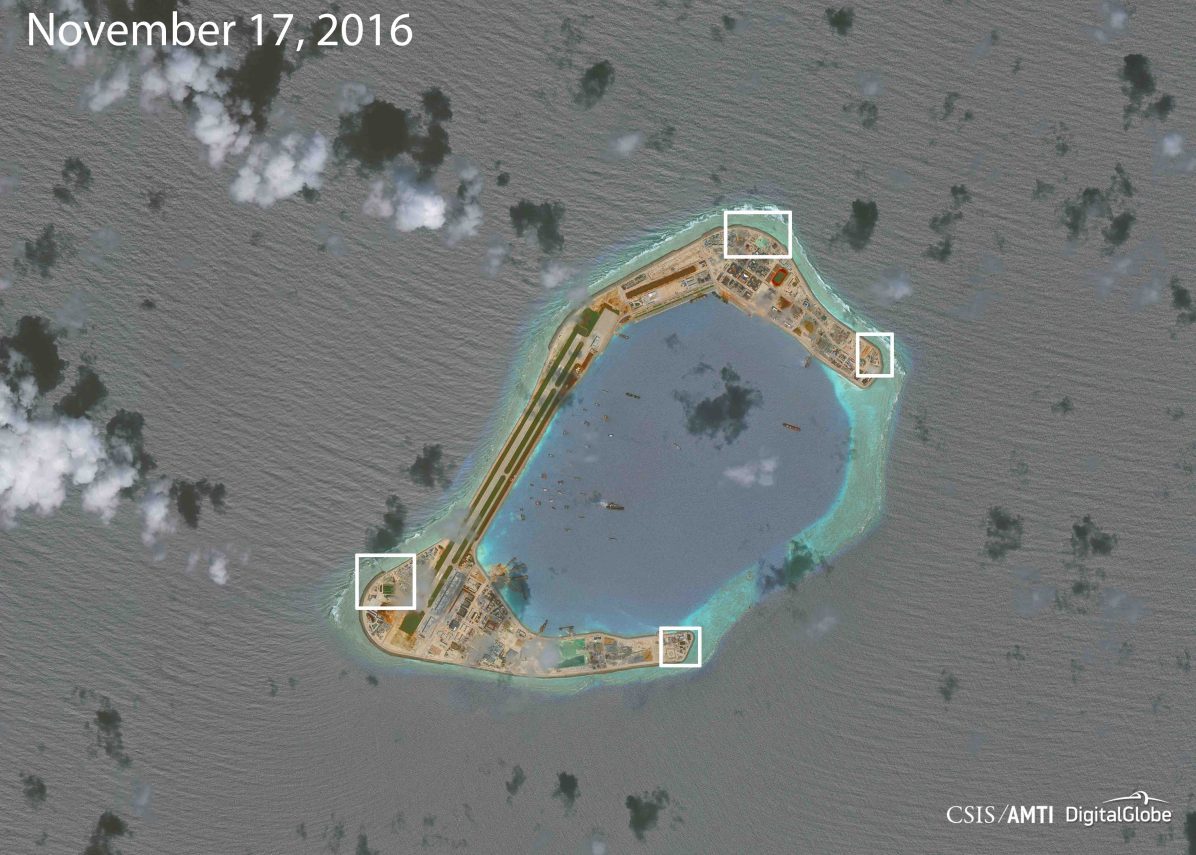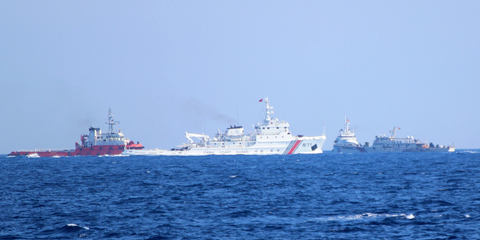
The statement of the ADIZ is only a matter of time. China is waiting for the opportunity to maximize the ratio of the cost - benefit of this action. Photo: Reuters.
Observers agree that sooner or later China will announce an ADIZ in the East Sea, where Beijing has made absurd claims covering thousands of acres to build runways, installation of high-precision radars, arrangement of fighters and long-range missiles.
There are two arguments to reinforce the above prediction. Firstly, Beijing is willing to accept "a high price" for an ADIZ that will bring in huge benefits for China. The second is the current situation also increasing the price that China’s rivals have to pay if they want to retaliate. Therefore, the statement of an ADIZ is only a matter of time. China is waiting for the opportunity to maximize the ratio of the cost - benefit of this action.
Considering the above perspective, the idea of an ADIZ attracts special attention because the scope of retaliation by Chinese rivals is not great while an ADIZ could prevent or offset some of the losses assumed by China. Such an idea is increasingly clear in recent months because the Permanent Court of Arbitration (PCA) in The Hague (Netherlands) expects to issue its ruling rejecting the vague 9-dotted line (also known as the U-shaped line) of China in the East Sea.
Not only that the ADIZ will offset a large part of the legal gaps that may arise when the 9-dotted line is concluded illegal. An ADIZ can impose new limitations more than the 9-dotted line. Besides, a recent report citing sources close to the Chinese military has said that this country is planning to establish an ADIZ in the East Sea.
Thus, whether the establishing of China's ADIZ in this area is just a matter of time? The answer seems to be confirmed, until you put another question: Whether other countries can prevent the establishment of an ADIZ in the East Sea or not? A survey for the second question shows that China's ADIZ establishment in the East Sea is not a matter of time but a matter of reaction.
More specifically, the rivals of China are holding strong cards in this game, and some of the cards are in the hands of small countries, which can be strong enough to deter China from officially declaring an ADIZ.
How will the key players react to China's ADIZ in the East Sea?

As a country that does not involve in the dispute, the US has little choice. Similar like the action against China's ADIZ in the East Sea two years ago, Washington could send bombers and fighters to the region to express their opposition to the decision of the China.
Washington can also send more military hardware in the region, increase patrols and deploy ships and planes closer to the islands that China occupies. But even if the US could triple military presence than the current level of 700 patrols per year, which is still small compared to hundreds of Chinese gunboats often present frequently in this area.
The Philippines has little choice after using one of its strongest cards. Manila took legal proceeding against China to the Permanent Court of Arbitration and has allowed Washington to use 5 of the ground and airbases. However, if China establishes the ADIZ, the Philippines and the US can upgrade their defense cooperation agreement and increase its naval bases by three. Two of these are the Carlito Cunanan naval base in the Gulf of Ulugan in the west coast of Palawan Island and the San Miguel Naval Base in the province of Zambales. Carlito Cunanan is the closest naval base to the center of the Spratly Islands while San Miguel is the nearest naval base to the Scarborough Shoal, which is being illegally occupied by China. These two bases can significantly increase the resilience of the US Navy with incidents in the East Sea.
Facing China’s permanent aggression in the East Sea, Vietnam and surrounding countries can fully protect the legitimate territorial sovereignty by exerting pressure on Beijing if they bring their neighbor to court. Beijing’s establishment of an ADIZ in the East Sea can be considered as “the last drop makes the cup run over”. Commenting on China's ability to establish ADIZ in the East Sea, Deputy Defense Minister Nguyen Chi Vinh was quoted by the press as saying that "it will be more dangerous than the 9-dotted line".

The Philippines, Malaysia and Vietnam can fully declare its own ADIZ to prevent the aggressive actions of China. This ADIZ will create a legal basis for these countries to carry out actions that could be interpreted as a way of exerting sovereignty over the archipelago.
Practical analysis shows that China's ADIZ in the East Sea issue is not the matter of time, but it depends on how the opponents of China will react. In this game of poker, the US, the Philippines, Malaysia and Vietnam are holding strong cards, whether China can bet before.
The establishment of ADIZ in the Paracels Islands and allowing the US to periodically approach to some periodic strategic locations in the central coast may be the factors that can change the game. If the "green light" is turned, these factors can deter China from announcing an official ADIZ in the East Sea.
But Beijing can also bet that neighbors (or the US) would think that it is not worth for them to do desperately. In this case, the decision made by small countries can make changes in Beijing’s decision.
Thao Linh